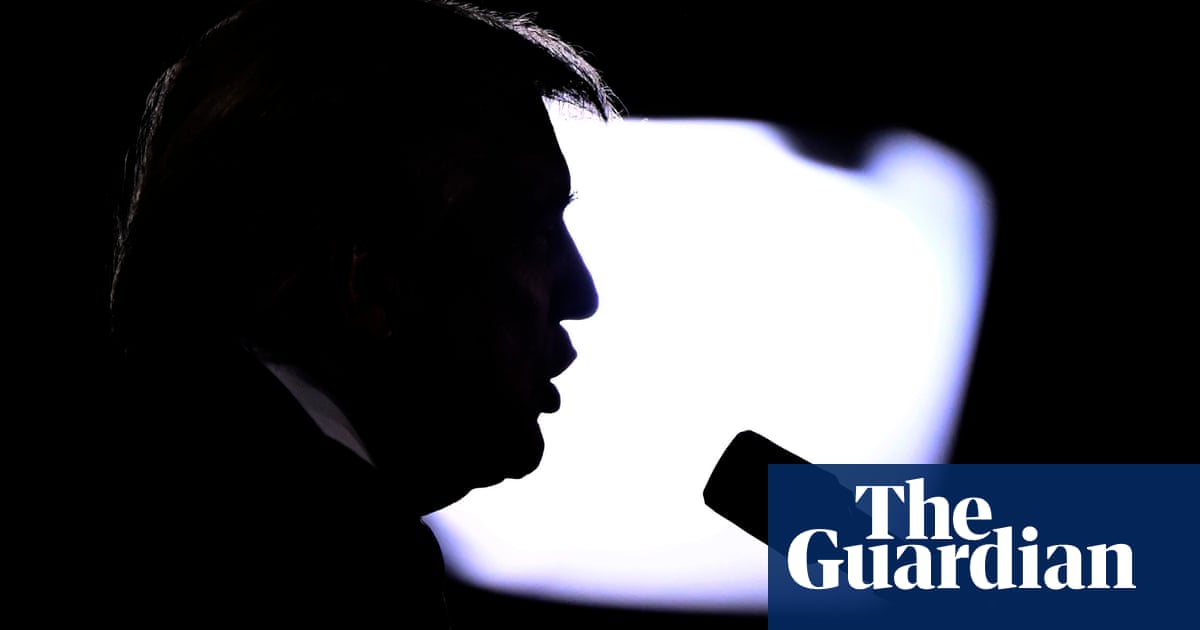From Trump Tower on Fifth Avenue to the Trump Building on Wall Street, the Trump World Tower by the United Nations to the Trump International overlooking Central Park, Donald Trump has stamped his name in golden letters on skyscrapers across New York City.
This real estate empire was the springboard for Trump’s ascent from tabloid fodder to reality TV stardom, and ultimately the presidency, all built on his self-projected image as America’s most famous businessman.
While the reality of Trump’s business acumen – and the true extent of his wealth – have long been questioned, on Friday a New York judge forever tarnished his gilded image, finding Trump and his allies guilty of frauds that “shock the conscience” and a “lack of contrition and remorse borders on pathological”.
Trump was ordered to pay $354.9m and was banned from leading a New York business for three years after a court found that he and his associates fraudulently overstated his net worth. The Trump Organization was wrenched from his family’s control – and its future looks far from certain.
For decades, the former president has portrayed himself as a brash, bronzed, brilliant businessman who ruled the Manhattan skyline. Whether lecturing Apprentice contestants, charming voters, or bragging to fellow world leaders, he could point to more than a dozen Trump-branded towers as evidence of all he had achieved.
Trump is “the archetypal businessman – a dealmaker without peer”, with a name “synonymous with the most prestigious of addresses”, according to his own company: the “very definition of the American success story”.
But Judge Arthur Engoron’s ruling is a shocking blow to this image. The same buildings which once embodied the former president’s fame and fortune will, for years, remain supervised by court-appointed monitors. For now, Trump has lost control of the corporation which once provided a stage for his persona.
And yet, just as he is separated from his business empire, his political machine is gearing up to propel him back into the Oval Office.
Trump has marched closer to the Republican nomination amid – not despite – these legal woes. He has tried to utilize this trial, and the others he faces, to bankroll his comeback campaign. They amount to politicized “witch-hunts”, he tells loyal supporters, suggesting that they, rather than he, are the true targets.
Minutes after Trump left the first day of his civil fraud trial in October, his machine sent out a fundraising email. “I just left the courthouse,” it began, claiming that politicians were “weaponizing the legal system to try and completely destroy me” and requesting contributions “of ANY amount – truly, even just $1 – to peacefully DEFEND our movement from the never-ending witch hunts”.
Over 11 weeks in a Manhattan courtroom, the Trump Organization was publicly exposed to forensic scrutiny for the first time. This is a business that says it has “set new standards of excellence”, affording Trump “the designation of arguably being the preeminent developer of luxury real estate” in the world. Engoron took an altogether different view.
Before the trial had even started, he ruled that the former president had committed fraud for years by exaggerating the value of his assets.
after newsletter promotion
Now, having heard the evidence, Engoron has imposed an eyewatering financial penalty. How Trump foots this bill is an open question. While his fortune has been pitted at around $2.3bn, the majority of this is tied up in the very business empire at the heart of this case.
The money is still coming in. Trump has proven to be a highly effective fundraiser. His campaign raised about $44m in the second half of last year. His legal battles appear to have provided an additional boost.
But beyond his race to regain the presidency, Trump is now grappling with legal penalties that could destroy the personal cash pile he has said is at his disposal. Even before Friday’s decision, he had been ordered to pay $83.3m to E Jean Carroll. The former president claimed in a deposition last year to have “substantially in excess” of $400m – a huge sum, but one that would be wiped out by these bills.
But this process has a long way left to run. “There’s enough uncertainty that it’s not an immediate concern,” said Gregory Germain, professor of law at Syracuse University. Trump, who has already appealed Engoron’s initial ruling, and is widely expected to do the same with this decision.
On the campaign trail and social media, in the courtroom and the inboxes of supporters, the former president has repeatedly pledged to fight what he argues is a gross injustice. On Friday Trump once again attacked the “tyrannical Abuse of Power” he claims is arrayed against him and the “liquid and beautiful Corporate Empire that started in New York, and has been successful all around the world.”
In November, the American people will deliver their verdict on whose story they believe.







